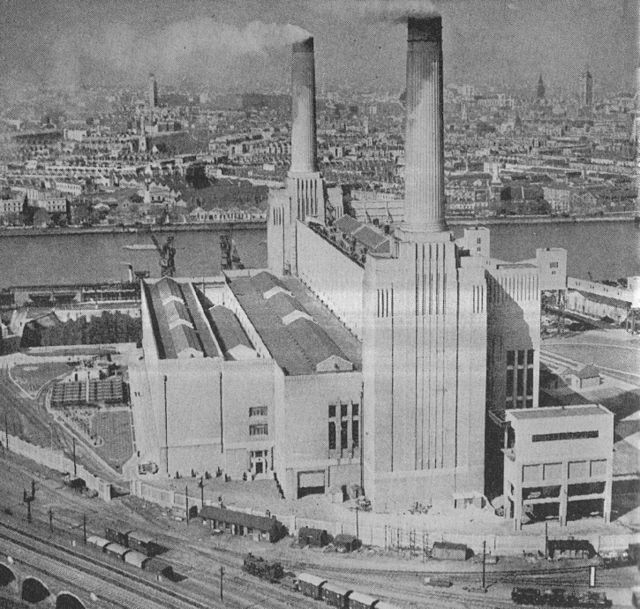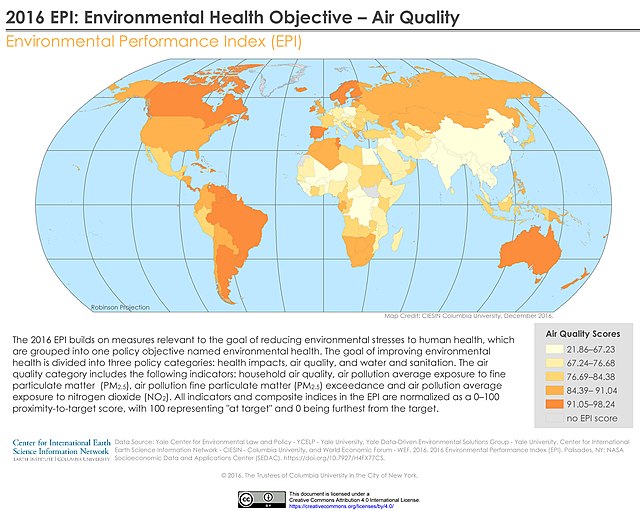The Great Smog of London, or Great Smog of 1952, was a severe air pollution event that affected London, England, in December 1952. A period of unusually cold weather, combined with an anticyclone and windless conditions, collected airborne pollutants—mostly arising from the use of coal—to form a thick layer of smog over the city. It lasted from Friday 5 December to Tuesday 9 December 1952, then dispersed quickly when the weather changed.
Nelson's Column during the Great Smog
Battersea Power Station in 1938
Air pollution is the contamination of air due to the presence of substances called pollutants in the atmosphere that are harmful to the health of humans and other living beings, or cause damage to the climate or to materials. It is also the contamination of the indoor or outdoor environment either by chemical, physical, or biological agents that alters the natural features of the atmosphere. There are many different types of air pollutants, such as gases, particulates, and biological molecules. Air pollution can cause diseases, allergies, and even death to humans; it can also cause harm to other living organisms such as animals and crops, and may damage the natural environment or built environment. Air pollution can be caused by both human activities and natural phenomena.
Air pollution from a coking oven
2016 Environmental Performance Index – darker colors indicate lower concentrations of fine particulate matter and nitrogen dioxide, as well as better indoor air quality.
Controlled burning of a field outside of Statesboro, Georgia, US, in preparation for spring planting
Smoking of fish over an open fire in Ghana, 2018






